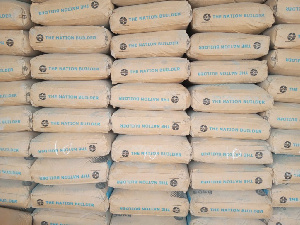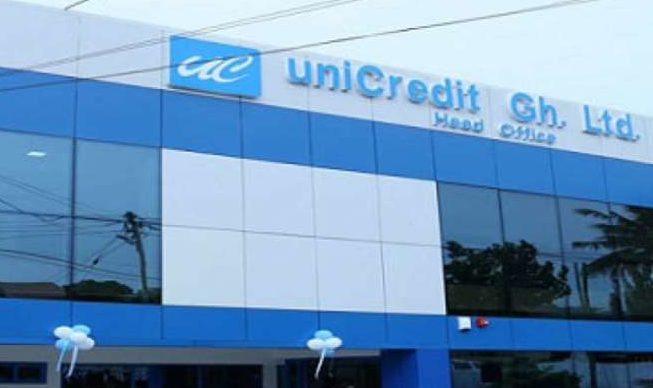GHACEM Cement Price Drops Significantly as Cedi Strengthens

In a welcome development for the construction industry and consumers alike, GHACEM has reduced the price of its cement from GHS 120 to GHS 82 per bag. This substantial price drop follows the recent appreciation of the Ghanaian cedi against the US dollar, easing the cost of imported raw materials and production inputs.
With the cedi gaining strength, similar reductions are expected across various imported goods and construction materials. Industry experts predict that this could boost economic activity, reduce inflationary pressures, and bring some much-needed relief to businesses and households.
As the local currency continues to stabilize, Ghanaians may soon enjoy broader price cuts across multiple sectors—an encouraging sign of economic resilience and recovery.
Moral lesson: A stable and strong local currency benefits everyone.
GHACEM Slashes Cement Prices as Cedi Strengthens—A Boost for Ghana’s Economy
In a significant turn of events for Ghana’s construction sector and the wider economy, GHACEM, one of the country’s leading cement manufacturers, has announced a major reduction in the price of its cement. The cost per bag has been cut from GHS 120 to GHS 82—a substantial drop that comes as the Ghanaian cedi gains strength against the US dollar.
This price reduction is more than just good news for the building industry; it signals broader economic implications. The appreciation of the cedi has made it less expensive to import critical raw materials, many of which are priced in foreign currencies. Cement production, which relies heavily on imported components such as clinker, limestone, and other additives, is one of the many industries directly impacted by the value of the local currency.
GHACEM’s decision is already being hailed by contractors, developers, and consumers across the country. Construction professionals say the drop in cement prices will reduce the overall cost of building, which has soared in recent years due to inflation, high material costs, and currency depreciation. For many Ghanaians dreaming of building their own homes or expanding their businesses, this move offers a glimmer of hope.
Economists view the development as a positive step toward easing inflationary pressure in the market. “When the cedi appreciates and holds its ground against foreign currencies, the cost of imported goods and raw materials naturally declines. This has a ripple effect, eventually bringing down prices for end consumers,” one financial analyst explained.
The implications go beyond just the cement industry. As the cedi continues to stabilize and gain ground, similar price reductions could be observed in other sectors that depend on imports, such as electronics, automotive parts, and other construction materials like iron rods and tiles. Retailers may also pass on savings to consumers, leading to a general decline in the cost of living.
For the business community, this is a welcome relief. Lower input costs mean more affordable production, improved profit margins, and greater competitiveness. Small and medium-sized enterprises (SMEs), which often struggle with volatile exchange rates and high operational costs, are especially expected to benefit. Some companies may even be encouraged to expand, hire more workers, or invest in local growth.
Government officials and financial regulators have worked hard to stabilize the cedi over recent months through a combination of monetary policy tightening, improved foreign exchange reserves, and investor confidence measures. Their efforts are beginning to show real-world results that are positively impacting Ghanaians.
In neighborhoods across Accra, Kumasi, and other regions, traders and consumers are already expressing optimism. A cement dealer in Madina Market shared, “We haven’t seen such a price drop in years. Customers are excited, and we’re selling faster than usual. If other building materials follow suit, it will help a lot of people who paused their projects due to high costs.”
Beyond construction, the potential trickle-down effects of a stronger cedi could help stabilize fuel prices, reduce transportation costs, and bring relief to food markets, where imported goods make up a significant share.
The broader lesson here is clear: currency stability matters. A strong and resilient local currency not only enhances investor confidence but also directly improves the lives of ordinary citizens. As the cedi continues to hold firm, the prospects for Ghana’s economic recovery and long-term development look increasingly promising.
While challenges remain—such as global commodity price volatility and domestic fiscal pressures—the latest move by GHACEM serves as a timely reminder that economic reforms and smart fiscal management can translate into tangible benefits for the population.
In conclusion, GHACEM’s bold price reduction is more than a market adjustment—it’s a signal of economic progress. It’s a moment of relief, hope, and momentum that Ghana can build on. And as this trend continues, one thing becomes evident: a stable and strong local currency benefits everyone.
Source: Thepressradio.com| Solomon Ogyem





